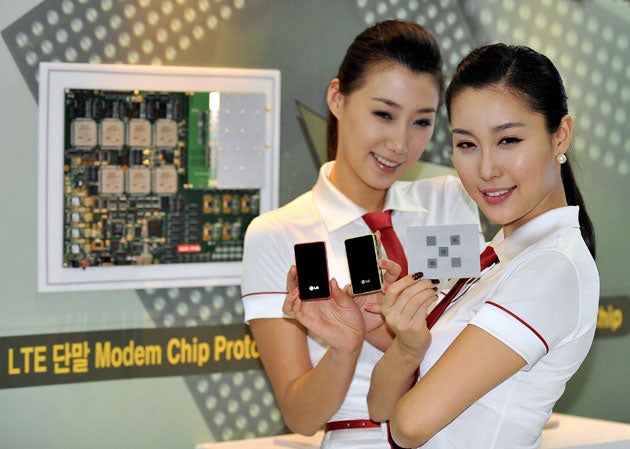Your support helps us to tell the story
From reproductive rights to climate change to Big Tech, The Independent is on the ground when the story is developing. Whether it's investigating the financials of Elon Musk's pro-Trump PAC or producing our latest documentary, 'The A Word', which shines a light on the American women fighting for reproductive rights, we know how important it is to parse out the facts from the messaging.
At such a critical moment in US history, we need reporters on the ground. Your donation allows us to keep sending journalists to speak to both sides of the story.
The Independent is trusted by Americans across the entire political spectrum. And unlike many other quality news outlets, we choose not to lock Americans out of our reporting and analysis with paywalls. We believe quality journalism should be available to everyone, paid for by those who can afford it.
Your support makes all the difference.LG Electronics claimed a step forward in the commercialisation of the next generation of internet capable handsets, demonstrating a modem chip with a download speed eight times that of the fastest mobile phones currently on the market.
The South Korean company unveiled the chip, created for a technology standard known as Long-Term Evolution, or LTE, at a research lab in Anyang, just outside Seoul.
The so-called fourth generation technology, still under development, is vying with the rival WiMax standard to usher in super-fast web browsing and downloads over mobile phones and other wireless devices.
"Now that LG has developed and tested the first 4G handset modem, a commercially viable LTE handset is on the horizon," Paik Woo-hyun, LG's chief technology officer, told reporters.
LG's claim to be first could not immediately be verified.
The company said that mobile carriers have built test networks and the first mobile phones using the technology will probably be available to consumers in 2010.
LG said it achieved wireless download speeds of 60 megabits per second and upload speeds of 20 Mbps. The fastest phones on the market use a different technology, known as HSDPA, and download at a maximum speed of 7.6 Mbps, according to LG.
The company said that with the technology a 700 megabit movie file can be downloaded in less than one minute at speeds of 100 Mbps.
LTE also allows consumers to stream high definition movies without needing a buffer, which ensures smooth play.
LG said that companies such as Qualcomm, Vodafone, Verizon Wireless and Japan's KDDI Corp. are supporting and contributing to the development of the long-term evolution standard.
The rival WiMax, or Worldwide Interoperability for Microwave Access, technology is similar to the Wi-Fi signals available at coffee shops and airports but provides wireless data over long distances and is already in use on a limited basis.
WiMax has been backed by South Korea's Samsung Electronics, Intel, Motorola, Sprint Nextel and Clearwire of the United States.

Join our commenting forum
Join thought-provoking conversations, follow other Independent readers and see their replies
Comments